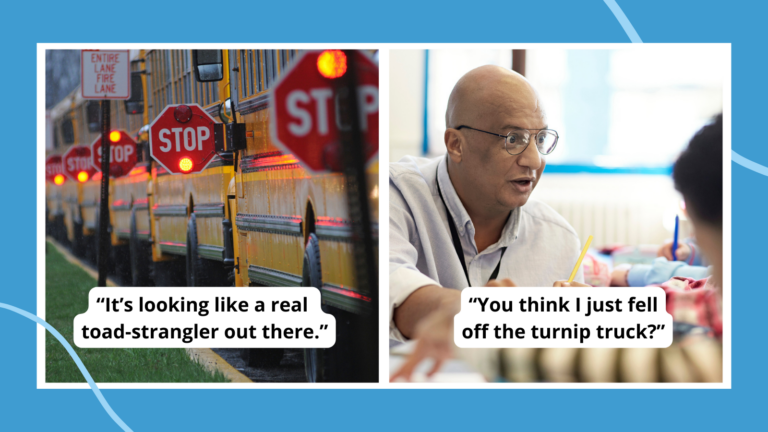At my last school, I looped with my students for all three years of middle school. As a result, I got to know my students and their families well, and many are relationships I still treasure.
If you’ve ever read my writing about parents before, I probably sound like a broken record, but I genuinely loved working with families when I was a teacher. Nearly all of them were kind, cooperative, and understanding. They were grateful that I created publishing opportunities for their kids and helped them choose meaningful books to read. They went out of their way to celebrate me and my personal milestones. And they made me laugh with literature and grammar memes, funny family stories, and quotes from their child that they’d send to me.
Unfortunately, a very small number of unsupportive parents—all in the same year—were enough to make me throw in the towel on teaching altogether.
But they don’t deserve the spotlight—the good ones do! Here are a few things the best parents who support teachers do.
1. They let teachers know that they support them.
A guaranteed way to make a teacher’s day is to send a quick email or note about how much they mean to you or letting them know you support them. In the past few years when teaching has been harder than ever, these little acts of kindness carry even more importance.
2. They don’t disparage teachers—to our faces or anywhere else.
No one is going to love every single one of their child’s teachers. But trust us—we know which parents spend their free time bashing teachers at home and on social media. Screenshots travel fast, and kids are quick to parrot words and attitudes about teachers that they hear at home.
3. They are both optimistic and realistic about their child.
One of my favorite students of all time was also hands-down the most impulsive. We needed to meet his mother pretty soon into the school year, and after we all went around and gently told her what we’d seen, she burst into laughter.
“I’m so sorry for laughing. It’s just—you’re not telling me anything I don’t know here. We love him so much. He is also A LOT. We’re not expecting any of you to work miracles this year. We just want him to pass 7th grade. Can we tell you what works at home?”
His mom made our jobs infinitely easier by talking about her son with a loving sense of humor that let all of us teachers know she was on our side—and his.
4. They’re not obsessed with a singular version of “success.”
At one school I worked in, we asked parents at the beginning of conferences what they wanted for their child.
I always worried when I met a parent who insisted their child needed all A’s or was bound to a particular university as a 7th grader. When you tie the success of your child to the specific benchmarks they can achieve, it’s a recipe for resentment and anxiety. It’s hard for a teacher to support a child authentically when your goals are out of alignment.
The best answer I heard during these conferences? “I want her to have the ability to choose a career where she is fulfilled, challenged, and able to see the positive difference she made for another person or her community.” Wow.
5. They remember that teachers are people.
A few years ago, someone I know was complaining that her child’s teacher “took a long weekend to get married—right before grades are due!” I’ve never forgotten it: this attitude that teachers are deferential machines we can pay nothing, expect the world from, and program to our personal whims and convenience.
The best parents, alternatively, remember that we are human. They start weekend emails with, “Don’t you dare look at this until Monday!” They ask if we want hand-me-downs their kids have grown out of. Memorably, they put a $10 bill and a note under your windshield wiper that says, “Get yourself a glass of wine tonight—you survived my child staying up late all week to watch the World Series!”
6. They are honest.
Sending your child—a fragile, walking skin-bag full of all your best traits and worst faults—to school is an act of vulnerability in itself. Teachers understand that all of us want to make excuses, cut corners, and reposition ourselves so we’re constantly in our best light.
Honest parents know that they and their children make mistakes, and they take accountability for those mistakes.
When you tell an honest parent, “Hey, this actually isn’t one of our approved drop-off zones,” they say, “I’m so sorry—I’ll do better next time,” not “Is one car really going to make that much of a difference?”
When you catch their student plagiarizing, an honest parent says, “We support you. I want to help him understand how to make a better choice next time,” not “Well, did you tell him he couldn’t copy and paste? Sounds like that’s on you, big dog.”
7. They show up in the ways they can.
We don’t expect every parent to be able to chaperone field trips, volunteer at the fall festival, or provide fancy items for the silent auction. “Showing up” can happen in other ways, too:
- Sending materials or forms when requested
- Volunteering for roles that can be done remotely, like being the contact person or setting up a SignUp Genius
- Reading the newsletter
- Making sure kids get a good night’s sleep
- Cooperating when we need support from home with discipline or completing work
8. They vote for candidates who support teachers and education.
Or at the very least, they don’t broadcast their support for anti-teacher school board members and government officials.
9. They act as our teammates.
Our jobs are so much easier when parents support us as teammates in the pursuit of what’s best for the child. Sometimes that’s helping establish firmer phone boundaries at night so the child isn’t falling asleep during class. Sometimes it’s bringing a box of tissues during cold and flu season if they’re able. (Can teammates ask questions, give feedback, or suggest other options? Of course!)
Parents who support teachers don’t have to make a huge donation, a lengthy time commitment, or other things that aren’t feasible for most families. Sometimes—actually, a lot of times—it’s the simple things.
Looking for more articles like this? Be sure to subscribe to our newsletters!


